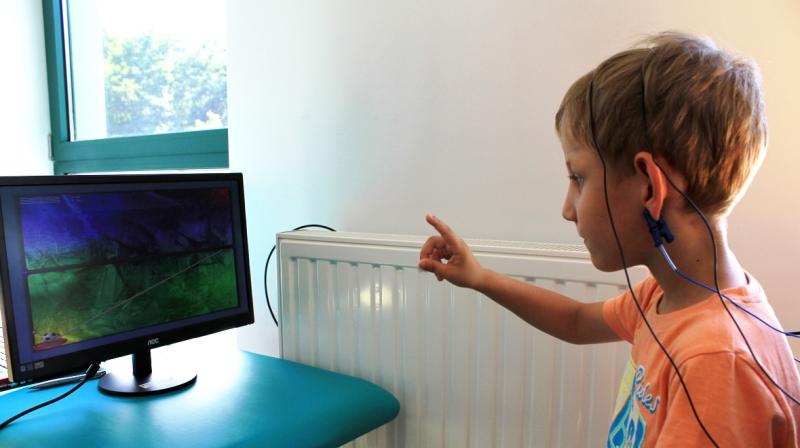Neurofeedback - A therapeutic approach against stroke and Parkinson’s
Studies reveal that neurofeedback, also known as EEG Biofeedback leads strengthens the nervous system.

Washington: A new study claims that brain training with neurofeedback leads to the strengthening of brain areas. The researchers also suggest that the therapy can help a person to develop therapeutic approaches against stroke and Parkinson’s.
Neurofeedback (NFB) is a therapy to heal the brain. It is a type of alternative therapy for people with eating disorders, addictions, mood disorders, anxiety, and attention deficit disorder. Neurofeedback, also known as EEG Biofeedback uses real-time displays to illustrate brain activity. The study was published in the journal - Neuroimage.
"We knew that the brain has an amazing ability to adapt itself, but we were not sure that we could observe these changes so quickly. Understanding of how we can impact on brain wiring and functioning is the key to treat neurological disorders," says researcher Theo Marins.
Neurofeedback has been considered a promising way to regulate dysfunctional brain areas associated with disorders. With this technique, the magnetic resonance equipment helps individuals to have access to their own brain activity in real time and quickly gain control over it.
Thirty-six healthy subjects participated in the study in which the goal was to increase the activity of brain regions involved in hand movements. However, instead of actually moves their hand, participants were asked to only imagine the movement, in total rest.
Nineteen of them received real brain training and the remaining 17 were trained with placebo neurofeedback, for comparisons purposes.
Immediately before and after the brain training, which lasted around 30 minutes, their neural networks were scanned in order to investigate the impact of the neurofeedback (or placebo) on brain wiring and communication.
The results show that the corpus callosum (the major cerebral bridge) that connects the right and left hemispheres exhibited increased integrity. Also, the neural network controlling the movements of the body became strengthened.
"We showed that the neurofeedback can be considered a powerful tool to induce brain changes at record speed. Now, our goal is to develop new studies to test whether patients with neurological disorders can also benefit from it," concludes Fernanda Tovar Moll.

